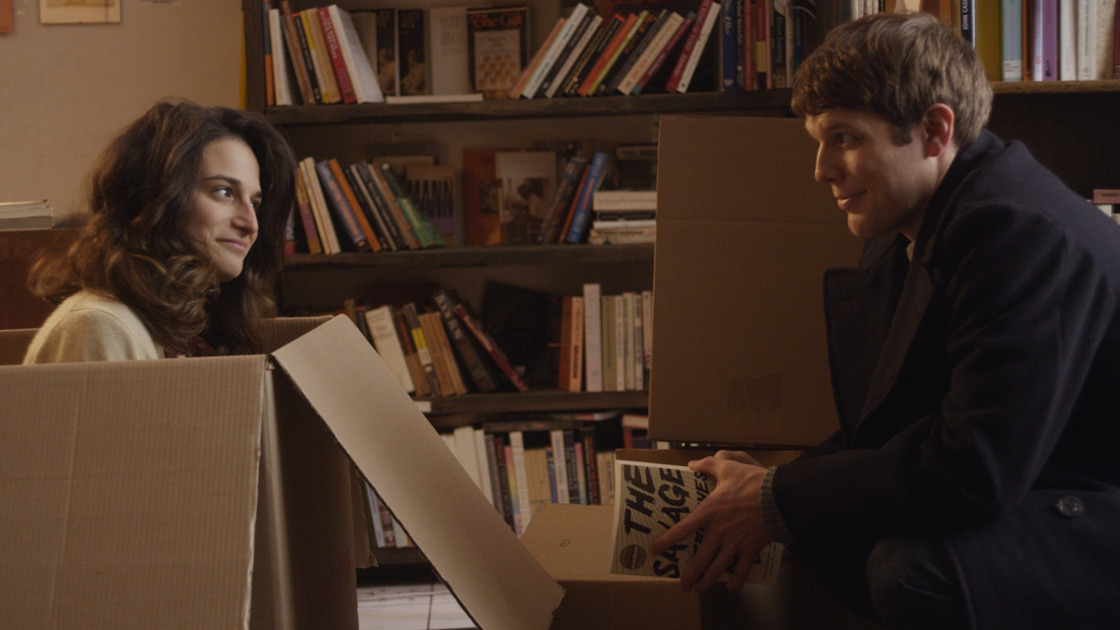Female Filmmaker Project
(originally posted on letterboxd)
Obvious Child is a true feminist comedy taking up the mantle of a personal story being very political just for existing within cinemas for audiences to see. There’s one scene in this movie where Nellie (Gabby Hoffmann) says something along the lines of “We’re still being legislated by old white men in robes who think they have power over our cunts” and that’s really the world we exist in today. Laws where access to abortion is easy and available are being repealed in states slowly and there’s really no reason why that should be happening so here comes Obvious Child totally being marketed as an “abortion comedy” in the wake of all this recent fuckery. The abortion aspect of this movie is just one piece of this movie’s story but the fact that it treats abortion as just something that people do is remarkable. The strengths of Obvious Child’s politics are in what Donna (Jenny Slate) doesn’t do as much as what she does. The film doesn’t dwell on what the father will think in a major way and she never falls back and then decides to have the child just because the father seemed like he wanted to be a parent some day. She never wavers on her initial decision. She’s free and independent and doing what she loves (comedy) and she doesn’t want to be a parent. So an abortion is the best option, and it’s her choice completely, because she’s the one in control of her body. That’s a strong statement in the world we live in today, and the biggest reason why I think this film won’t end up getting the audience it so truly deserves. It’s controversial, but like in the film it should be the most normal thing in the world.
In terms of cinematic family Obvious Child’s closest relative is probably Bridesmaids. There’s plenty of scatological humour to go around and Donna never tip toes around parts of her behaviour that aren’t stereotypically ladylike. She just does whatever feels right and if that’s standing up on stage and telling jokes about poop and farts that’s what she’s going to do. There’s also a streak of female friendship plotting that runs through the course of this film. Gabby Hoffmann plays Donna’s best friend Nellie and while Nellie isn’t written as strongly written as Donna she stands as a great supportive best friend. This isn’t Romy and Michelle levels of closeness but their strong chemistry and the few scenes those two have together give you the feeling that they really are best friends, and that’s always a plus in this type of film.
Obvious Child isn’t a perfectly directed movie but Robespierre’s first major feature does have some quality moments. She finds a way to make the stand up comedy sequences feel different than the last with small variations in camera technique. After Donna bombs with a deeply personal set she works more often in close up and even begins the scene staring at Donna’s back, her bra strap exposed, top totally ruffled on her chest. It sets up this feeling that this set is going to be a little more vulnerable and bare than the rest and Robespierre’s lens on Donna’s body gives us that feeling. Much like Frances Ha a lot of the legwork is done by the lead performance. Slate’s body language, often at war with herself between confidence, fragility and recklessness, shows a person who knows exactly what she is doing with her life, but easily thrown into a tailspin when things veer off course. One of my favourite instances of Slate’s acting is during the final stand up set when she finally lets the father to be know she is getting an abortion and does so with such varied emotional complexity while still keeping her set in rhythm.
Obvious Child is also just extremely funny. It helps that the audience I saw this with was almost 75% women and found every joke the most hilarious thing in the world. It almost felt like a communal experience of female energy laughing at a comedy that was made for women and had me feeling good for hours afterward. This is the kind of film that needs to exist more often, for representation, political and quality reasons.

Be First to Comment